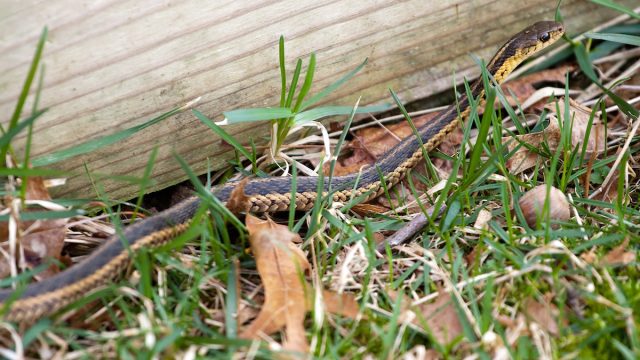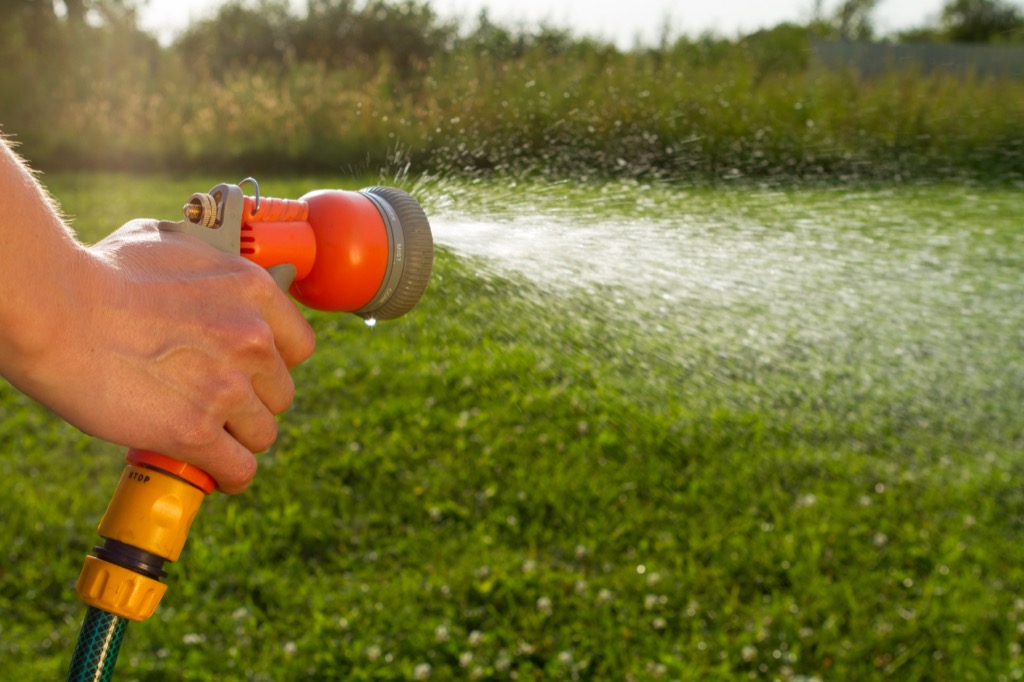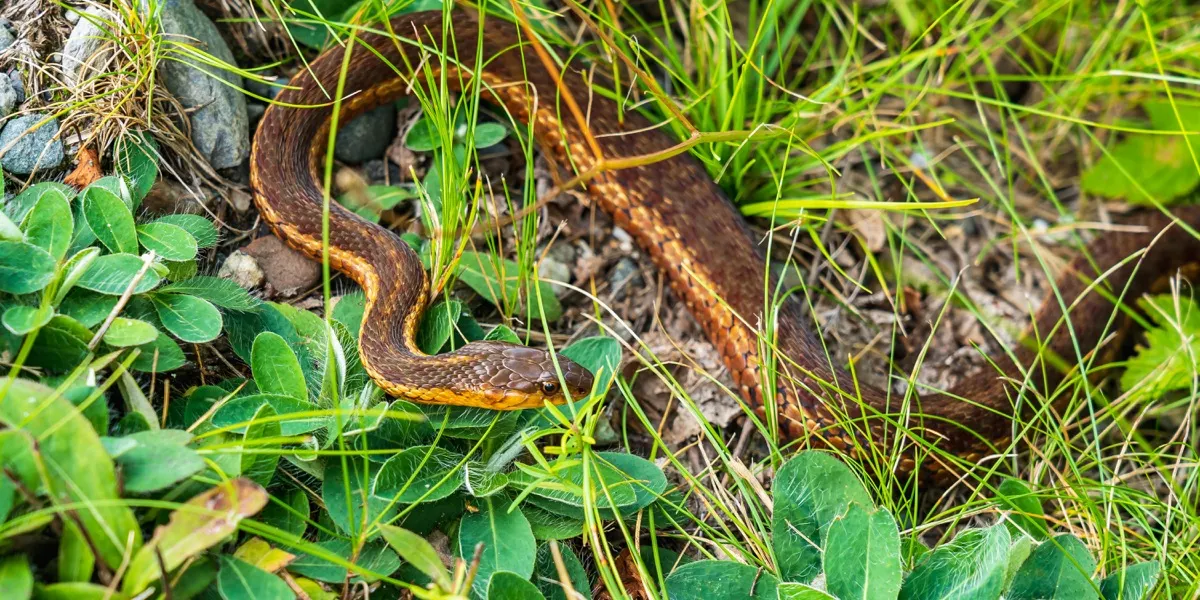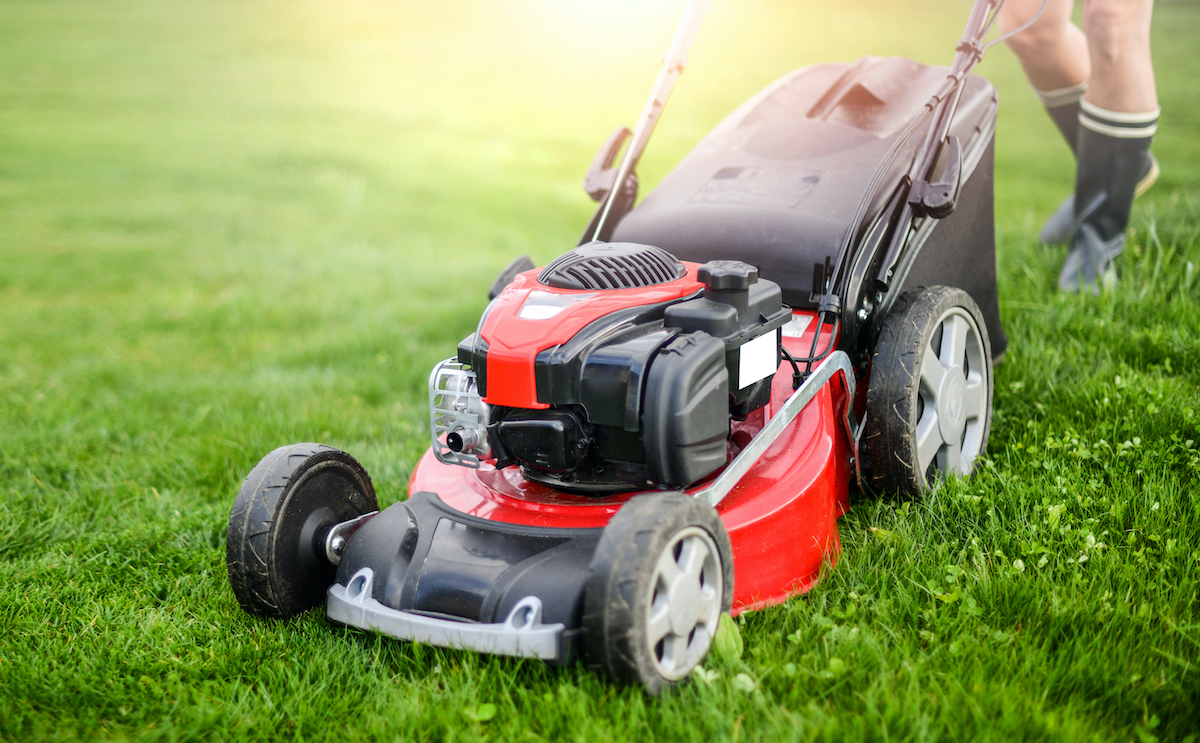You’re Attracting Snakes to Your Home If You Overdo This One Thing

There are few things more frightening than crossing paths with a slithering snake in your own backyard. Of course, nature is a snake’s home, but we totally understand that you’d rather it not be so close to yours. While snakes will come and go as they please in your yard, there are some things you may be doing—or doing too much of—that inadvertently attract them. Experts warn that you should avoid making this common mistake that may bring snakes to your yard.
RELATED: If You’re Not Cleaning This Room, You’re Inviting Snakes to Your Home.
Overwatering your garden or lawn can attract snakes.

Snakes are drawn to areas that are well stocked with food for them to eat, and overwatering your lawn attracts snakes’ favorite snacks, which makes them more likely to pay your backyard a visit. “Too much landscape water may attract prey species such as worms, slugs, and frogs, which in turn may attract snakes seeking a meal,” explains Terry Messmer, Utah State University Extension wildlife specialist, on the university’s website.
If you notice snakes in your yard, it may be a sign that you have problems with other pests you should be worrying about, according to the experts at Varment Guard Wildlife Services. Matthew Mills, CEO of green pest manufacturer Med-X and the creator of Nature-Cide, says you must try to limit the population of other pests that are a snake’s prey by making your yard unattractive to them.
“Overwatering your yard leads to weed and brush growth, which opens the yard up to rodent harborage, which attracts snakes through a sense of smell,” explains Mills. “Snakes have a very keen sense of smell to their prey and are always looking to harbor where there is ample prey.”
RELATED: 6 Things That Are Bringing Snakes Into Your Home.
Snakes themselves are also attracted to moist environments.

In addition to food, snakes also need moisture to stay cool and hydrated, according to the Varment Guard experts. “They’re attracted to puddles, wet grass, sunken spots, and other stagnant water,” they say.
If you see snakes in your yard, it’s likely because you’re inadvertently providing them with a spot that has all the amenities they need to survive, like your overwatered garden or grass.
Long grass and big plants provide shelter for snakes.

Sure, watering your garden and grass will lead to lush lawn and blooming flowers, but it will also provide snakes with their ideal shelter.
Snakes need shelter to protect them from predators, such as hawks, explain the pros at Varment Guard, which means they love overgrown vegetation and grass.
These reptiles also tend to burrow through loose topsoil or leaves. “Snakes love hiding, and what better place to hide than a yard full of leaves?” Megan Cavanaugh of Done Right Pest Solutions previously told Best Life. “Leaves on the ground provide cover for them. Keeping your yard clear of leaves and other debris, like sticks, will help deter snakes.”
RELATED: For more up-to-date information, sign up for our daily newsletter.
Removing shelter, moisture, and food sources for snakes will help prevent them from coming to your yard.

If you’re looking for a way to prevent snakes from shacking up in your yard, or you’re trying to get rid of some that have already visited, you need to deprive them of their basic needs. If snakes are seeking moisture, food, and shelter, and your yard is currently providing that, you need to make some changes.
The experts at Varment Guard Wildlife Services say you should first aim to remove anything that could serve as shelter for snakes. Mow the grass and trim the bushes frequently. “Snakes hate feeling exposed and avoid open, highly visible areas,” they explain.
Then you’ll want to tackle the removal of any excess moisture in your yard. Varment Guard Wildlife Services recommends making sure your garden hose and spout aren’t leaky, and that you avoid overwatering your grass and garden.
“Keeping a tidy yard and cleaning up after pets as well as making sure dog food bowls and backyard picnic areas are cleaned after use will greatly increase the chances for a pest-free environment,” said Mills.
RELATED: Leaving This in Your Garage Is Bringing Snakes to Your Home, Experts Warn.